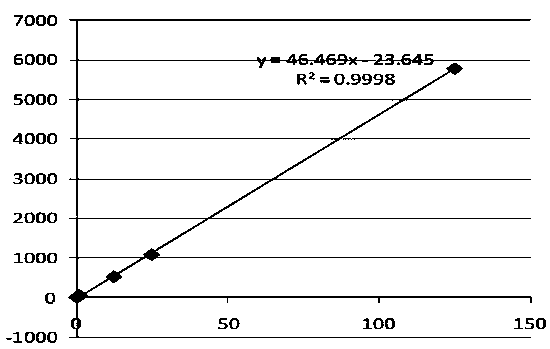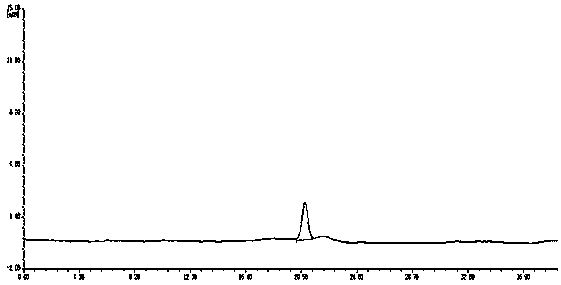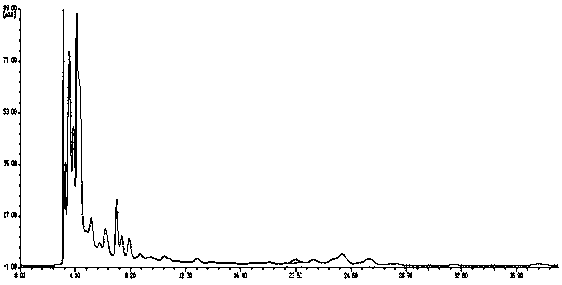A HPLC detection method of salicylic acid content in sugarcane leaves
A technology for sugarcane leaves and detection methods, which is applied in measuring devices, instruments, scientific instruments, etc., to achieve the effects of complete effective components, good impurity removal effect, and stable sample retention time
- Summary
- Abstract
- Description
- Claims
- Application Information
AI Technical Summary
Problems solved by technology
Method used
Image
Examples
Embodiment 1
[0027] The HPLC detection method of salicylic acid content in the sugarcane leaf of embodiment 1
[0028] S1. Select sugarcane leaves infected with the pathogen of sugarcane tip rot as the sample to be tested, take 2 g of the sample to be tested and add liquid nitrogen to grind, add 10 mL of 80% methanol aqueous solution pre-cooled to 4 ° C, and extract at 4 ° C for 16 hours, Centrifuge at 8000 r / min for 10min, take the supernatant, add 5mL of the residue to pre-cool to 4°C with a volume fraction of 80% methanol aqueous solution for 2h at 4°C, take out the supernatant after centrifugation, combine the supernatant, 40°C Evaporate under reduced pressure to no methanol, add 15mL of petroleum ether for extraction and decolorization 3 times, discard the upper organic phase, and evaporate the lower aqueous phase to dryness at 40°C, add 0.5mL of mobile phase used for HPLC detection to dissolve, and dilute to 2mL , filtered through a 0.45 μm microporous membrane into a sample bottle w...
Embodiment 2
[0043] Example 2 Study on the difference of susceptibility and resistance of sugarcane varieties infected with tip rot.
[0044] (1) Preparation of inoculum: Inoculate the pathogenic bacteria of sugarcane tip rot on PDA medium for 3 days to activate, pick the mycelia from the edge of PDA medium and inoculate them in sterilized potato glucose water medium for 3 days, centrifuge, Use sterilized absorbent cotton to filter and collect the obtained bacteria, and use sterile water and bacteria to prepare a concentration of 1 × 10 6 CFU / ml sugarcane tip rot pathogen spore suspension.
[0045] (2) Treatment of inoculation materials: sugarcane variety YT94-128 and sugarcane variety GT37 were selected as inoculation materials, and 30 barrels of each variety were planted under greenhouse conditions, with 4 buds per barrel, and the seeds were soaked with 0.3% carbendazim for 20 minutes before planting. Manage normally after emergence, and inoculate when 5 to 6 complete leaves grow.
[0...
PUM
 Login to View More
Login to View More Abstract
Description
Claims
Application Information
 Login to View More
Login to View More - R&D
- Intellectual Property
- Life Sciences
- Materials
- Tech Scout
- Unparalleled Data Quality
- Higher Quality Content
- 60% Fewer Hallucinations
Browse by: Latest US Patents, China's latest patents, Technical Efficacy Thesaurus, Application Domain, Technology Topic, Popular Technical Reports.
© 2025 PatSnap. All rights reserved.Legal|Privacy policy|Modern Slavery Act Transparency Statement|Sitemap|About US| Contact US: help@patsnap.com



